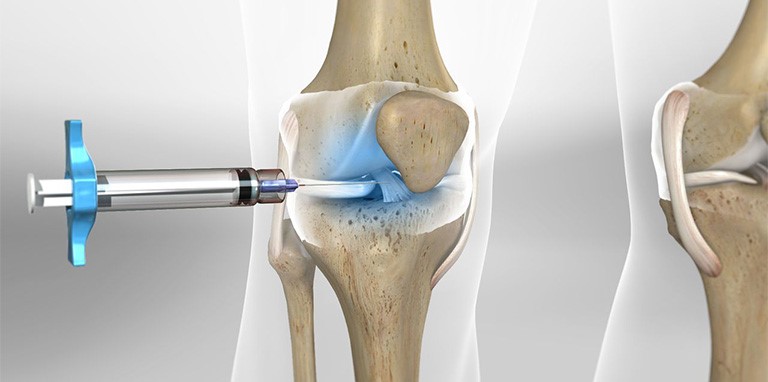Hyaluronic Acid (HA) is a naturally occurring polysaccharide molecule that plays an important role in synovial fluid, helping to lubricate the joint, reduce friction, and absorb shock between the ends of bones.
In osteoarthritis (OA), the amount of HA in the joint gradually decreases due to aging or injury, causing the joint to become dry, painful, and more difficult to move.
Therefore, intra-articular HA injections are considered a therapy to restore viscosity, improve mobility, and relieve pain. Some studies have shown that the effects are often noticeable after 4–8 weeks and may last from several months up to about 12 months.
Research has also shown that:
-
HA has chondroprotective properties, supports the synthesis of proteoglycans and endogenous HA, and reduces inflammation by inhibiting cytokines such as interleukin-1.
-
HA has been widely used for more than 30 years in the treatment of knee osteoarthritis, although its effectiveness and duration of action remain topics of debate

Injection of HA into the knee joint


